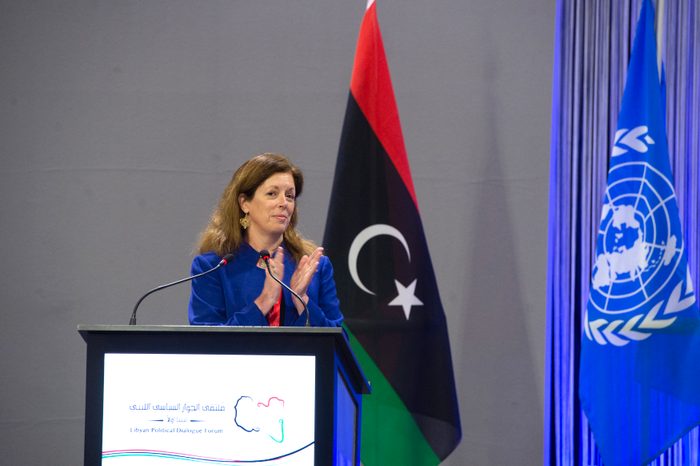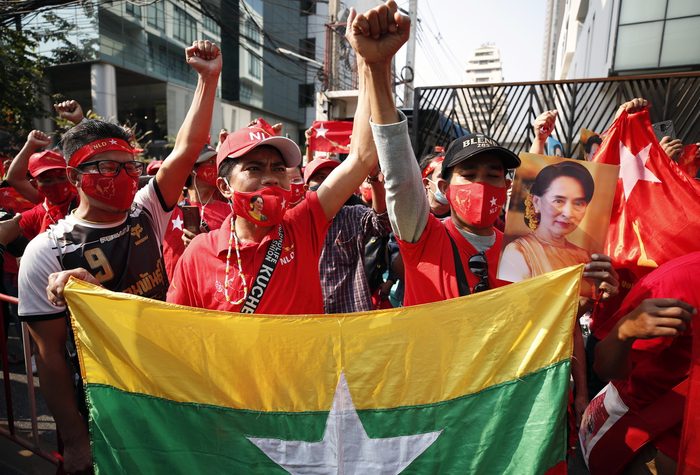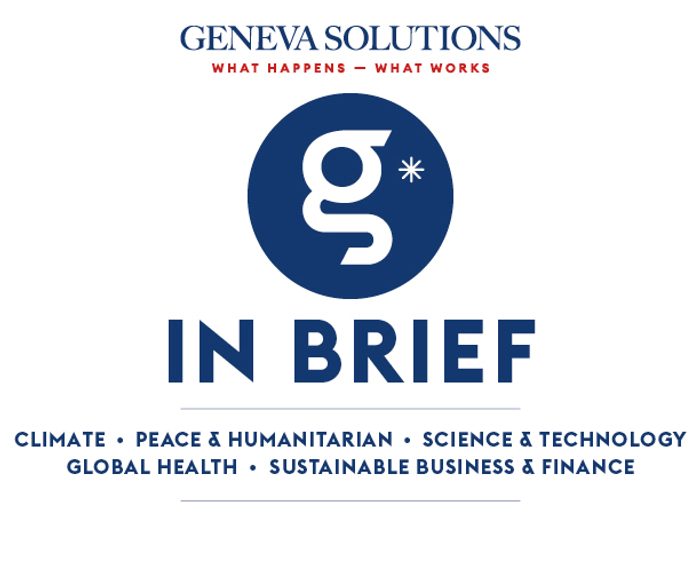Good morning, this is Pip, and today we’ve got the latest update on Libya’s political talks, as delegates from the country’s rival factions meet for a vote that aims to bring an end to a decade of turmoil.
We’re also hearing why the disarmament world is so prone to deadlock, and looking into how local communities are paving the way to peace in Mali, with the help of a Geneva-based organisation. |

Acting UN envoy to Libya, Stephanie Williams. (Credit: UN / Violaine Martin)
|
|
Delegates from Libya’s rival factions
met in Geneva on Monday to select the leaders of a new transitional government who will oversee preparations for an election at the end of the year, and bring an end to the country’s political divisions. However, there are concerns over whether the winners of the UN-facilitated process will be accepted by rival regimes.
Geneva Solutions (EN)
|
|
|
Peace and humanitarian news
|
|
|
🔒 Deadlock in the disarmament world.
The annual Conference on Disarmament (CD) got off to a tense start last month when member states Iran and Turkey blocked rivals Saudi Arabia, the United Arab Emirates (UAE) and Cyprus from taking part in the forum. We look into why deadlock is so common in the disarmament world.
Geneva Solutions (EN)
|
|
🇸🇾 Syria talks a “disappointment”.
The UN special envoy for Syria said the latest round of talks to revise the country’s constitution last week failed to make any progress, and that committee members need to “work better together” if they hope to help heal the country.
Geneva Solutions (EN)
|
|
☮ Communities forging peace in Mali.
Three new peace agreements have been signed between warring communities in central Mali, mediated by the Centre for Humanitarian Dialogue. We hear how locally-led, representative processes are paving the way for stability in the country.
Geneva Solutions (EN)
|
|
|
Riot police detained thousands
who took part in demonstrations across Russia on Sunday calling for the release of Putin’s most prominent critic Alexei Navalny. He was detained on his return from Germany last month, where he had been recovering from an assassination attempt using the nerve agent Novichok.
BBC (EN)
|
|
Here’s what else is happening
|

Credit: Keystone / EPA / Rungroj Yongrit
|
|
Demonstrators protest outside Myanmar’s embassy
in Bangkok, Thailand, on Monday. Myanmar’s military has taken power and declared a state of emergency, detaining Aung San Suu Kyi and other senior figures from the ruling party. The coup brought swift condemnation from the international community, with the UN secretary general calling it “a serious blow to democratic reforms in Myanmar”.
Al Jazeera (EN)
|
|
|
GS news is a new media project covering the world of international cooperation and development. Don’t hesitate to forward our newsletter!
Have a good day!
|

|
|
Avenue du Bouchet 2
1209 Genève
Suisse
|
|
|
|










